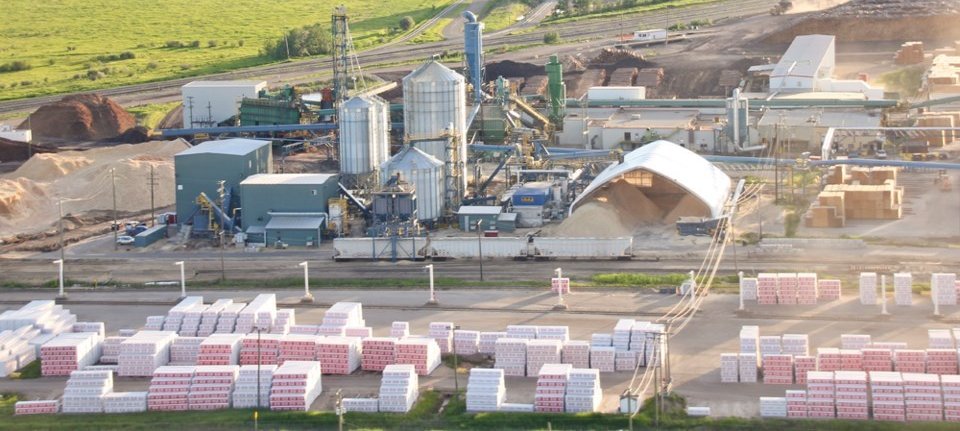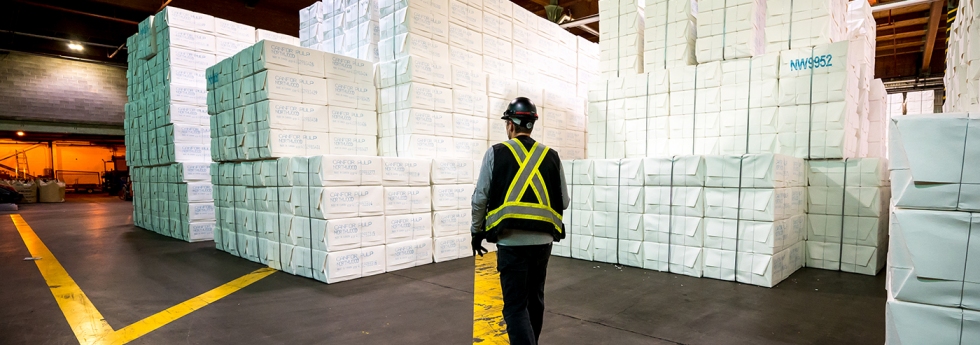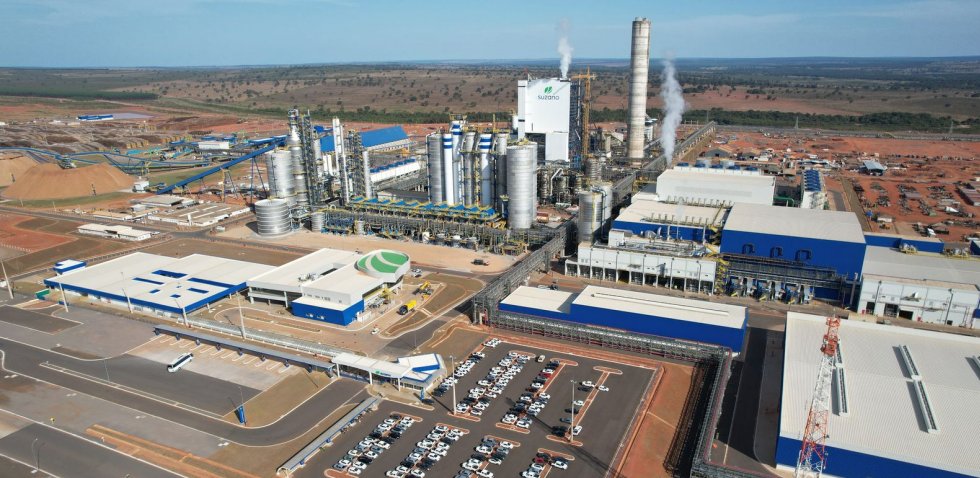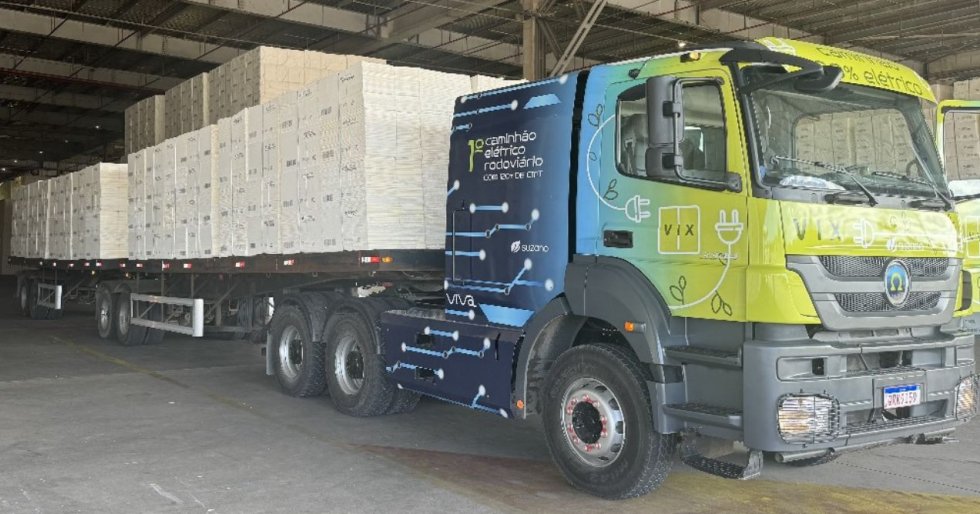|

Canfor to Close Plateau and Fort St. John Sawmills in Northern BC
Sept. 9, 2024 - Following a thorough review of operating conditions, including the persistent challenge accessing economic fibre, ongoing financial losses, weak lumber markets and increased US tariffs, Canfor Corporation announced [on Sept. 4] the closure of its Plateau and Fort St. John operations located in northern British Columbia. These closures will impact approximately 500 employees and will remove 670 million board feet of annual production capacity from our BC operations.
Don Kayne, President and CEO made the following statement:
"Our company has proudly operated in BC for more than 85 years, supporting jobs and economic activity in communities around this province. During that time, we have always been prepared to manage through challenging times and market fluctuations, recognizing the cyclical nature of our business. However, in recent years, increasing regulatory complexity, high operating costs and the inability to reliably access economically viable timber to support our manufacturing facilities has resulted in hundreds of millions of dollars of losses in our BC operations.
"The operating challenges we face have been further exacerbated by increases in the punitive US tariffs announced on August 13th — tariffs that are expected to more than double again next year. Continuing to operate under these conditions would prolong the punishing anti-dumping duties and put additional operations at risk. As a result, we are making the incredibly difficult decision to close our operations in Vanderhoof and Fort St. John.
"We are devastated by the decline in our province's foundational forest industry, and we recognize the impact these closures will have on our employees and their families, as well as our First Nations partners, contractors, suppliers, communities and customers. We are committed to supporting our employees and will work with our union partners on an employee transition plan, including severance. The wind down of operations is expected to be complete by the end of the year.
"With the dramatic reduction in available timber supply, we will explore opportunities to divest some of our northern BC tenure, which may help support other BC forest companies facing the same significant challenges in accessing economic fibre.
"Finally, we will continue to do all we can to advocate for changes that will allow our industry in BC to once again be able to thrive in the future," Kayne concluded.
Canfor (TSX: CFP) is a global leader in the manufacturing of high-value low-carbon forest products including dimension and specialty lumber, engineered wood products, pulp and paper, wood pellets and green energy. Headquartered in Vancouver, British Columbia, Canfor produces renewable products from sustainably managed forests, at more than 50 facilities across its diversified operating platform in Canada, the United States and Europe.
SOURCE: Canfor Corporation |
|

Canfor Pulp Reports Second Quarter 2024 Results
July 25, 2024 - Canfor Pulp Products Inc. ("CPPI") (TSX: CFX) reported its second quarter of 2024 results.
Overview
- Q2 2024 operating loss of $5.6 million; net loss of $6.3 million, or $0.10 per share.
- Strong global pulp pricing and moderate improvement in NBSK pulp unit sales realizations.
- Intercon NBSK pulp mill scheduled maintenance downtime completed as planned; restart delayed due to unforeseen recovery boiler repairs and start up challenges.
- Announced indefinite curtailment of one production line at Northwood NBSK pulp mill, driven by the decline in availability of economic fibre in the northern British Columbia region.
The Company reported an operating loss of $5.6 million for the second quarter of 2024, compared to an operating loss of $15.7 million for the first quarter of 2024. These results largely reflected an uplift in global pulp pricing, primarily in response to global pulp supply disruptions, and the correlated improvement in the Company's average Northern Bleached Softwood Kraft ("NBSK") pulp sales unit realizations. These factors were offset in part, however, by a decline in the Company's pulp production and shipments quarter-over-quarter, driven by extended downtime at its Intercontinental NBSK pulp mill ("Intercon") to address unforeseen recovery boiler repairs identified during the scheduled maintenance in May.
In May 2024, the Company announced the decision to indefinitely curtail one production line at its Northwood NBSK pulp mill ("Northwood") as a result of the continual decline in the availability of economic fibre in the northern British Columbia ("BC") region. The Company anticipates winding down this production line in August 2024. In connection with this indefinite curtailment, CPPI recognized restructuring costs of $5.9 million during the current quarter.
CEO Comments
Commenting on the Company's second quarter of 2024 results, CPPI's President and Chief Executive Officer, Kevin Edgson, said, "While our pulp business benefited from strong global pulp pricing this quarter, operationally, unanticipated downtime at our Intercon pulp mill limited our ability to take full advantage of this higher pricing environment and moderated our second quarter results. The decision to indefinitely curtail one line at our Northwood NBSK pulp mill was extremely difficult, however, necessary given the continuing fibre cost pressures and a difficult outlook for availability of economic residual fibre in BC. We regret the impact these decisions have on our employees, their families and the local community, and are working to support our employees through this transition. As we prepare for an orderly wind-down in August, we would like to thank our employees for their unwavering commitment and perseverance."
Second Quarter Highlights
Although global pulp producer inventories remained relatively balanced throughout the current quarter, the uplift in global softwood kraft pulp markets experienced at the end of the first quarter continued well into the second quarter, as global supply disruptions gave rise to an uptick in global pulp pricing. As a result, NBSK pulp list prices on orders from China, the world's largest consumer of pulp, saw steady increases throughout most of the period, reaching a 15-month high of US$825 per tonne in May, before declining in June, to end the quarter at US$810 per tonne. For the current quarter overall, average US-dollar NBSK pulp list prices to China were US$811 per tonne, an increase of US$66 per tonne, or 9%, from the previous quarter.
Pulp production was 130,000 tonnes for the second quarter of 2024, down 28,000 tonnes, or 18%, from the first quarter of 2024, primarily due to a reduction in operating days at Intercon. While the scheduled maintenance at Intercon was successfully completed as planned in early May, downtime was extended into early June to address unplanned repairs that were determined necessary following an inspection of Intercon's recovery boiler. The delayed restart resulted in pulp from Northwood being redirected to supply the Company's specialty paper facility.
Notwithstanding higher slush pulp costs (linked to the uplift in Canadian dollar NBSK pulp unit sales realizations), operating income in the Company's paper segment was $1.9 million, up $0.8 million from the previous quarter, largely reflecting moderately higher paper unit sales realizations, driven by an increase in global US-dollar paper pricing.
Outlook
Looking forward, global softwood kraft pulp market conditions are anticipated to soften through the third quarter of 2024 as global softwood pulp supply stabilizes, following disruptions in the first and second quarters of 2024, and as new hardwood capacity in China and Brazil is projected to come online. On the demand side, purchasing activity during the third quarter of 2024 is projected to dampen as the traditionally slower summer period is forecast to combine with reduced demand for paper products, particularly in China, further weakening pulp demand.
As a result of the aforementioned decision to wind down one production line at its Northwood pulp mill in August 2024, the indefinite curtailment will result in the reduction of approximately 300,000 tonnes of market kraft pulp annually. Consequently, the Company's results in the third quarter of 2024 will reflect the impact of this wind down on production, shipments and cost structure.
Looking forward, while the Company is focused on optimizing a sustainable operating footprint, improving operational reliability and closely managing manufacturing and fibre costs, it will continue to evaluate its operating conditions and will adjust operating rates at its pulp mills to align with economically viable fibre supply. These factors could also affect the Company's operating plan, liquidity, cash flows and the valuation of long-lived assets.
Bleached kraft paper demand is forecast to remain solid through most of the third quarter of 2024, after which a modest slowdown in demand is anticipated as global kraft paper inventories return to more normalized levels.
No major maintenance outages are planned for the third quarter of 2024.
Canfor Pulp Products Inc. is a leading global supplier of pulp and paper products with operations in the northern interior of British Columbia, Canada. Canfor Pulp operates two mills in Prince George, BC with a total capacity of 780,000 tonnes of Premium Reinforcing Northern Bleached Softwood Kraft ("NBSK") pulp and 140,000 tonnes of kraft paper.
SOURCE: Canfor Pulp Products Inc. |
|

Suzano Begins Operation of New Pulp Mill in Mato Grosso do Sul, Brazil
July 22, 2024 - Suzano on July 21 started operations at its new pulp mill in Ribas do Rio Pardo, located in the state of Mato Grosso do Sul, Brazil.
The new pulp mill, which Suzano named "Cerrado Project" while under construction, has the capacity to produce 2.55 million tons per year of eucalyptus pulp.
The project is the result of a total investment of R$22.2 billion (US$4.3 billion), of which R$15.9 billion (US$3.1 billion) was earmarked for the construction of the mill and R$6.3 billion (US$1.2 billion) for initiatives such as the formation of the planting base and the logistics structure for the flow of cellulose.
"The successful completion of the Cerrado Project reflects the dedication and executional skills of each person involved in this grand and transformational project, and demonstrates the culture of excellence that permeates the entire organization, masterfully led by Walter Schalka over the past 11 years," said Beto Abreu, newly appointed CEO of Suzano. "His vision and ambition led the company to deliver a project within budget and that, at every stage, adhered to Suzano's core focus of supporting sustainability and having a positive local impact."
With the start of operations at the new unit, Suzano's installed pulp production capacity will increase from 10.9 million to 13.5 million tons per year, representing an increase of more than 20% over the company's current production.
Suzano also has the capacity to produce 1.5 million tons of paper per year, including sanitary paper, printing and writing paper, and packaging paper, among other items that use pulp as a raw material.
The construction of the Ribas do Rio Pardo Unit was announced in May 2021 and, at the peak of the work, more than 10 thousand direct jobs were created. With the start of operations, around 3 thousand people, including employees and third parties, will work in the industrial, forestry and logistics activities of the new unit.
Suzano is the world's largest producer of hardwood pulp and a global leader in the innovation and production of renewable, bio-based materials for consumer and industrial use.
SOURCE: Suzano |
|

Suzano Begins Testing First High-Capacity Electric Truck to Improve Sustainable Transportation
July 11, 2024 - Suzano, in partnership with VIX Logística, announced it has begun testing the first high-capacity electric truck in Brazil capable of towing up to 120 tons, at its Aracruz site, located in the state of Espírito Santo, Brazil.
The “Atlas” truck, developed by VIX, has the potential to save up to 8,300 liters of diesel per month and reduce CO2 emissions by approximately 21 tons.
Suzano’s ambition is to reduce emissions by 20% on the route between the mill and Portocel – where products from Suzano’s Aracruz Unit are exported to different parts of the world. This partnership marks a significant step in accelerating the energy transition of Suzano’s pulp transportation fleet, allowing Suzano to integrate more sustainable transportation practices throughout its operations, and reinforcing the company’s commitment to sustainability at all stages of the supply chain.
The implementation supports Suzano’s Commitments to Renewing Life – its long-term targets aligned with the UN Sustainable Development Goals, in building a better world for people and the planet. Deploying “Atlas” into Suzano’s transportation fleet will help Suzano in its goal of removing 40 million tonnes of CO2 from the atmosphere by 2025 environment, a volume equivalent to São Paulo’s emissions over two years.
"The partnership with VIX Logística is an important strategic marker for us, representing a significant milestone in our efforts to implement new technologies at all stages of our operations to help us deliver cleaner and more efficient transportation solutions", says Beatriz Nalevaiko Venturini, Operational Excellence Manager at Suzano.
The “Atlas” truck, and its capacity to hold 120 tons, is a significant improvement on traditional solutions available on the market, which weigh around a total of 40 tons (truck weight + load). Developed from a Mercedes-Benz Axor 3344 chassis, “Atlas” operates via electric propulsion and, because of lithium iron phosphate (LFP) batteries, offers a far more sustainable alternative.
Elias Alves, director of VIX and responsible for VIVA - VIX Autonomous Vehicles – said the partnership aligns with the company's innovative culture: "Having an innovation drive within the company allows us to test creative and bold solutions. The adoption of efficient and sustainable technologies is a major trend in the market, and VIX stands out in this movement, remaining at the forefront of the logistics sector."
Suzano and VIX Logística started testing “Atlas” in May this year. The vehicle's operational performance will be carefully monitored by Suzano during the first few months, with the intention of further deploying the alternative to other operations of the company.
Suzano is the world’s largest producer of market pulp. The company’s responsibly grown raw materials are used in products reaching over two billion people in more than 100 countries, including tissue and toilet paper, books, printing and writing paper, diapers and period products, packaging, textiles, and a range of innovative applications that can replace products made from fossil fuels.
SOURCE: Suzano |
|
|